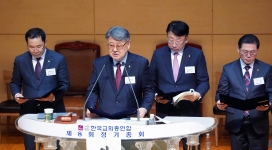
The long-running show 60 Minutes is often known for putting people on the spot to get some in-depth news. It shouldn't come as any surprise that they decided to make Apple a subject of their stories last Sunday, and the report asks difficult questions to CEO Tim Cook, as well as highlighting the company's history and its future.
Charlie Rose talked to Tim Cook, and how Tim feels amazing respect for the late CEO Steve Jobs, saying that "the DNA of Steve Jobs" is baked into Apple. It talks about the 9:00 AM meeting on Monday morning with all the department heads, and how 60 Minutes was not allowed in.
Jonathan Ive, the Chief Design Officer of Apple, had a chance to meet with 60 Minutes, and there was a room with black cloth covering a lot what is most likely new products. Charlie learned that Ive and his team designed ten different models of the iPhone 6S, and apparently, he has this much dedication and more to Apple products. In fact, every product that Apple has made has had Ive's approval, and some of the techs, like the camera with over 200 parts, is a product of a lot of hard work.
This probably doesn't come as any surprise to anyone who has seen Apple's products and has been accused of making products that quickly go out of date. Rose spoke to an executive who isn't worried about that, and how cannibalizing its product is by design, bringing this 600 billion dollar company a 40 percent profit margin.
The big secret is the Apple Car, and Charlie couldn't get Tim Cook to say anything about that one. Tim Cook said that there is "more secrecy here than the CIA." Rose also couldn't get them to talk about the sales figures of the Apple Watch, which Apple has not released as yet.
Apple has had its share of secrets with their encryption codes, which they will not give to homeland security, believing that people's secrets are to be their own. Another issue is all the money that Apple has invested overseas, which is tax-free. Congress wants Tim to "bring that money home", but Tim Cook doesn't like these laws that he says were made for an industrial age and not a digital one.
Another subject was how workers are treated in China. Cook states that he uses Chinese workers because they have the skill, and not due to low wages. The stories about Foxconn industrial park in Shenzhen, China are pretty infamous, with nets put up to keep workers from jumping off the top. There were 14 deaths in 2010 alone, but this number is non-existent for the past two years. Cook himself wants to work for human rights, having come out as gay himself.
One of the last spots on the 60 Minutes tour was the Apple Spaceship, a ring-shaped building that costs about 5 billion dollars and will have 13,000 people working underneath its circular roof. This building is completely off the grid, and will be open for business sometime next year.
It is possible to see the entire segment at 60 Minutes on the CBS website here.







